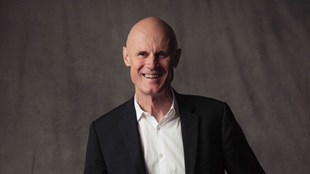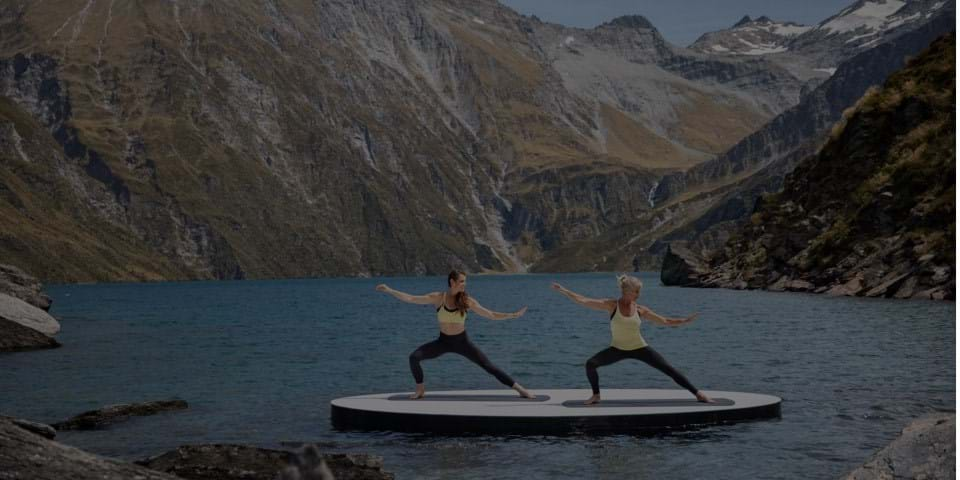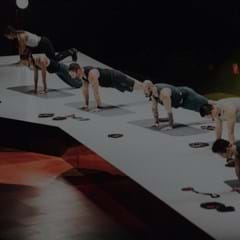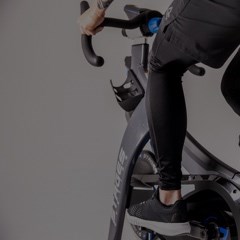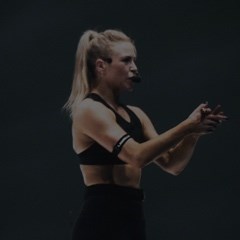SARAH SHORTT:
In the new Advanced Training, we are encouraged to reflect on what drives us to want to teach. Could you share an insight on what drives you?
PHILLIP MILLS:
I’ve always loved helping people. Even when I was on the gym floor as a teenager, I wanted to help the members out with their training.
If you start talking to me I’m going to tell you much more than you ever wanted to know about how to make your life better and eat better and exercise better and all that sort of stuff. And that’s just a passion or a bad habit or whatever.
But I have a lot of drive and love for what we do.
You devised the original Initial Module Training system for Instructors. Could you explain the background to that?
As an athlete I always was the sort of person who thought a lot about how to train better and the best ways to get results.
I have an analytical mind and I did my undergraduate degree in philosophy. Philosophy is a lot of thinking about why things are as they are, and separating things out into logical streams.
I’m also a fan of great Instructors and I love going to great classes. I’m a bit of a geek around the whole area of how you find and develop great Instructors and the best ways to train people.
The combination of these things turned out to be weirdly useful when we developed our system for training Instructors. I analysed what made up a good teacher to formulate the five key elements that we use in Initial Module Training: choreography, technique, coaching, connection, and performance.
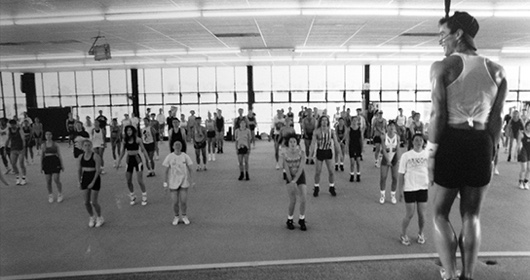
In the new Advanced Training course, there is a big focus on identifying and elevating your strengths as an Instructor. Why is this important?
People do their best when they play to their strengths. You can waste your time trying to fix what you’re bad at, or you can identify your strengths and build on them.
Over our years in Group Fitness, we’ve found that successful teachers are rarely truly great at more than one thing.
You can have a teacher who is beautiful to watch, someone who has a background in ballet or gymnastics and people will come along just to watch them because their movement is so inspirational.
Then you can have someone who teaches really intelligently and is just a great coach – they tell you the what, why and how and we know people really like that. There are people who have amazing stage presence, who’ve come from a performance background – like G [Gandalf Archer Mills], Rach [Newsham] or Des Helu; people who can get people feeling the magic and emotion in class - that’s an incredible talent.
And you get those people who are just fantastic connectors, who are very social and want to get to know the people in their classes, really care about them and want to help them out.
You really only have to be excellent at one of these things to be a rockstar and build huge classes.
The other one of course is choreography, at which we found few people were truly excellent, despite the fact that most spent 95 per cent of their time on it... That led us to standardise it for the teachers in our New Zealand clubs and the rest is history.
What does this mean for assessment?
We are about to start rewriting our assessment system.
With our current system, we’re trying to push everybody to be good at everything, forcing too many square pegs into round holes rather than saying, hang on, let’s identify what this person is great at and let’s make them better at that.
It’s not that you shouldn’t work on your weaknesses but as Marcus Buckingham says, the best you‘re going to do is go from bad to zero.
Is it important? Are there minimums? Yes - we don’t want Instructors having such appallingly bad technique that people can’t follow them and we don’t want people instructing exercises in a way that is going to be ineffective or dangerous.
However, it’s so much more effective to identify what you’re good at and build on that - that’s what’s going to make you really successful as a teacher. And how you identify what you’re good at is that it’s generally what you love doing. Normally people’s strengths come from their passions. Throughout their lives they will have had certain things that they love doing so they will have done more of them, and they just will have evolved since they were children to being the type of person who does those things well.
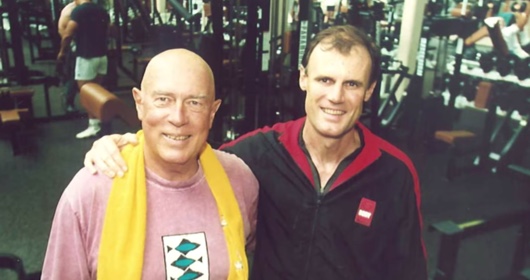
How important are connection and performance in training?
We made some mistakes with training in the past.
In the effort to make training shorter (three days to two days) we reduced the time spent on performance and connection in IMT a few years back and you didn’t get in depth focus on those until you did AIM 2 - which most people weren’t doing - so recently we put them back in. People think of these elements as advanced skills but they’re not, they’re just two of the key strengths that people have and we need to cater to those people as much as we cater to the other key elements.
So now we’re improving this. We recreated Initial Module Training to include performance and connection again and delivered the new Advanced Training… but right now what we’re working on is improving the assessment process so it does cater to real life humans - their abilities and their strengths.
What do Instructors mean to you?
I spent most of the ‘80s teaching, so I have great empathy for our Instructors, and a great respect for what they do. There’s so many of them out there really changing the world and making it a better place, making people healthier, helping them to do things that are good for them externally and internally.
I have a “my body is my temple” philosophy that’s almost a spiritual thing for me. I identify with being a warrior in the battle for a healthier lifestyle. I don’t want people to be eating junk food, I want them to be healthier and happier and building a better society.
I love and respect the fact that a lot of our Instructors have similar feelings and are a part of that movement to want to do something good in the world. But I’m sensitive to greenwash and virtue signalling. I’m suspicious of people who talk too much about “purpose”, because we all act on mixed motives all of the time. In the end it’s what you do that counts, not what you say.
Be sure to check out part two of Phillip’s interview next month, where we delve deeper into the legacy of Les Mills.
Advanced Training launched in the US, UK and the Nordics in January 2019.
Watch this space for updates on when the new training will become available in your country.



